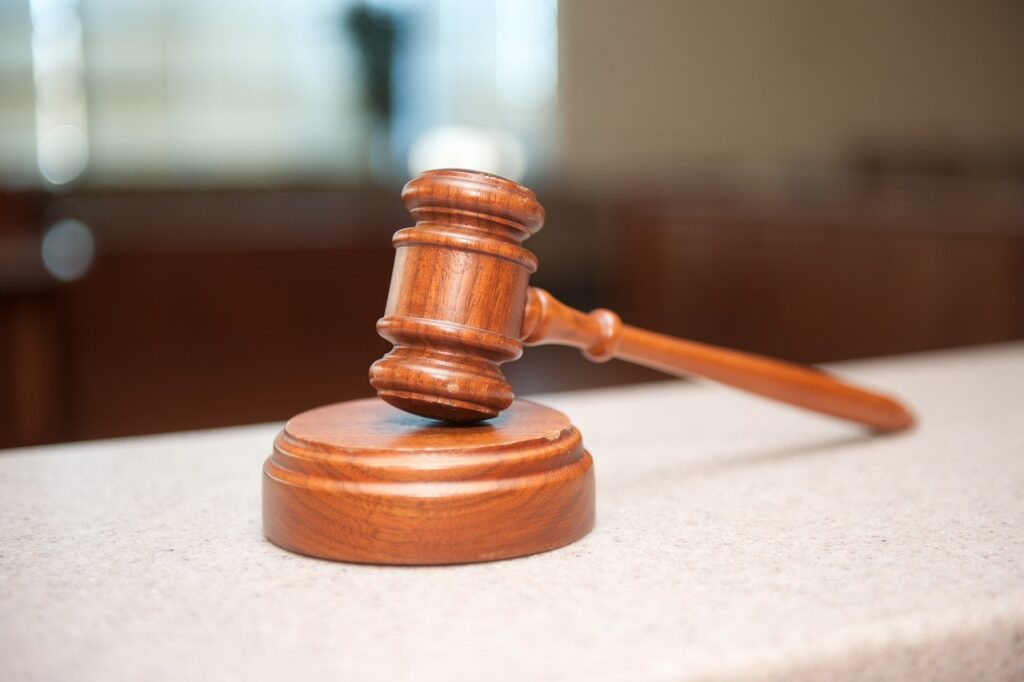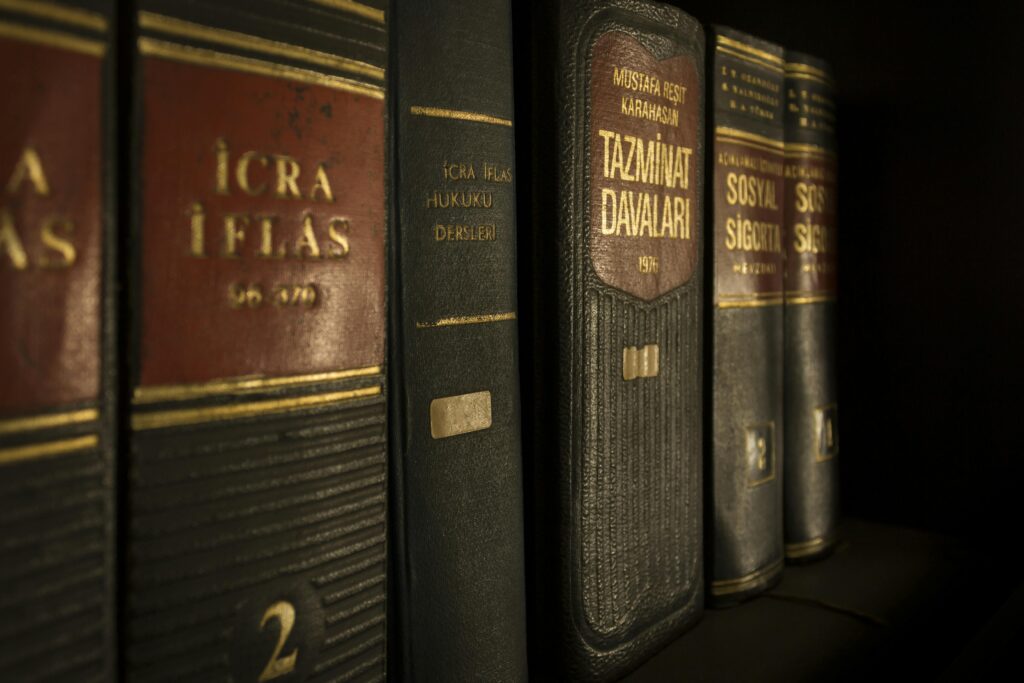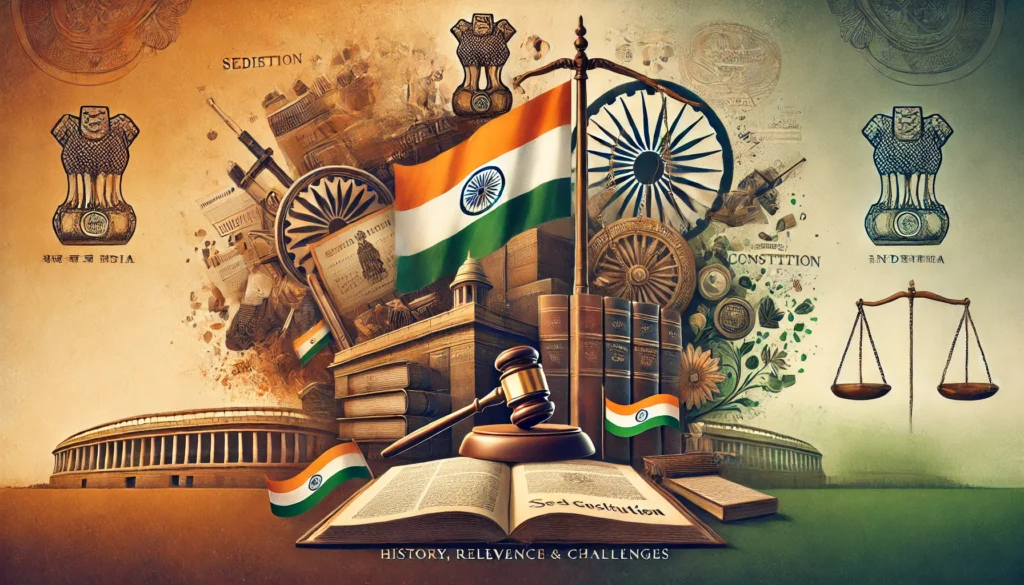Published on: 31st October 2025
Authored By: Krishna Sutariya
Balaji School of Law (BSL), Pune
ABSTRACT
In this article, we understand the custodial deaths during police custody or in judicial custody in India. Custodial death is one of the most serious human rights violations. In the case of D.K. Basu vs. State of West Bengal, the Supreme Court gave guidelines for custodial deaths during police custody. In India, Custodial torture is a serious issue that highlights the need for systemic implementation by law enforcement agencies for better protection of individuals’ rights. In 2019, India estimated that 1723 custodial incidents occurred, which constitutes 5 deaths every day. Even though India signed the UN Convention Against Torture (CAT), India has not ratified this convention or passed a central law to prevent custodial violence. [1]
In this article, we analyse various provisions in Bhartiya Nyaya Sahita (BNS), Bhartiya Nyaya Sakshaya Sahita (BNSS), and multiple Articles, including 14, 19, 20, 21, and 22[2] Regarding prisoners and violations of their human and fundamental rights during their custody. The Indian Judiciary gives various directions on custodial violations.
INTRODUCTION
Custodial deaths- When a person dies while in police or judicial custody- are a serious issue even in countries that claim to be strong democracies. Such incidents deeply disturb ordinary citizens and erode their trust in the system. These cases raise big concerns about human rights, and there is growing international pressure on governments to stop such violations. In 1980, Arun Shourie investigated 45 deaths in police custody in seven states. He found, “the patterns are uniform from one death to another, from one state to another, that generalisations are possible. The victims were invariably poor, and several of them were hauled in on no formal charges at all. Even in the case of persons who were arrested, in an overwhelmingly large number of cases, they are all accused of petty offences.”[3]According to the Law Commission of India, the crime by a public servant against the arrested or the detained person who is in custody amounts to custodial violence. While law enforcement agencies are responsible for maintaining law and order, setting a constitutional boundary, particularly for the deaths of the arrested or detained person, is a violation of fundamental human rights of the accused or detainee. The Article 21 Right of Personal Liberty, which is guaranteed by the Indian Constitution in India, is violated in Custodial Cases. Recently, the Supreme Court has said there is a need to take a “Stricter View” while dealing with bail pleas of police personnel accused in Custodial death Cases.[4]
STATUTORY AND CONSTITUTIONAL FRAMEWORK ON CUSTODIAL DEATHS
- Provisions under the Bhartiya Nyaya Sanhita (BNS), 2023 (earlier IPC)-
- Causing Death: Section 100 of BNS,2023- Culpable Homicide, i.e., causing death with intention or knowledge (earlier Section 299 of IPC), Section 103 of BNS- Punishment for Murder, (earlier section 302 of IPC), Section105 of BNS- Punishment for Culpable Homicide Not Amounting to Murder (earlier Section 304 of IPC).
- For Custodial Torture: Section 120 BNS- Voluntary Causing Hurt to Extort Confession (earlier Section 330 of IPC), Section 120 of BNS- Voluntarily Causing Grievous Hurt to Extort Confession (earlier Section 331 of IPC), Section 127(8) of BNS- Wrongful Confinement to Extort Confession (earlier Section 348 of IPC).
- For Abetment: Section 49 of BNS- Abetment of Offence (earlier Section 109 of IPC), Section 55 of BNS- Abetment of Offence Punishable with death or imprisonment for life (earlier Section 115 of IPC.
- For Negligence: Section 257 of BNS- Public servant in judicial proceeding corruptly making report, etc… contrary to law(earlier Section 219 of IPC), Section 258 of BNS- Confinement for trail or confinement by person having authority who knows that he is acting contrary to law(earlier Section 220 of IPC), Section 262 of BNS-Resistance or obstruction by person to his lawful apprehension(earlier Section 224 of IPC), Section 263 of BNS- resistance or obstruction to lawful apprehension of another person (earlier 225 of IPC).[5]
- Provisions under the Bhartiya Nagarik Suraksha Snhita,2023(earlier CrPC)-
- Section 196 of BNSS- Inquiry by Magistrate into cause of death(earlier Section 176 of CrPC), Section 197 of BNSS- Ordinary Place of Inquiry and trial(earlier Section 177 of CrPC), Section 187 of BNSS- Procedure when investigation cannot be completed in 24 hours (earlier Section 167 of CrPC), Section 43 of BNSS- Arrest how made(earlier Section 46 of CrPC), Section 46 of BNSS- NO unnecessary restraint(earlier Section 49 of CrPC), Section 53 of BNSS- Examination of arrested person by medical officer(earlier Section 54 of CrPC), Section 183 of BNSS- Recording of Confession and statement(earlier Section 164 of CrPC), Section 218 of BNSS- Prosecution of Judges and Public Servants(earlier Section 197 of CrPC).[6]
- Provisions under the Indian Police Act,1861-
- Sections 7 & 29– Provide that any police officer who is negligent in performing his duty and unfit to perform is liable to dismissal, penalty, or suspension. [7]
- Provisions under the Indian Evidence Act,1872(Now Bhartiya Sakshya Adhiniyam (BSA) ,2023)
- Section 24(Now 22): Confession made by threat or inducement from a person in authority to avoid any kind of gain and evil of a temporal nature to the accused would be irrelevant in a Criminal Proceeding.
- Section 25(Now 23& (1): Provide that a Confession made by an accused person to a police officer shall not be taken as evidence against that accused person.
- Section 26(Now 23(2): Provides that a confession made by the accused person in Police Custody shall not be proved against him unless the confession is made in the presence of a magistrate.[8]
- Constitutional Articles Which are Related to Custodial Deaths in India –
- Article 14: Equality before the law- Under this article accused shall be treated equally as other person before the law. This is the duty of the state, i.e., guards of law, shall not deny to any person equality before the law.
- Article 19: Protection of right regarding speech and expression, etc. Here, authorities, guards of law, have suspended their freedom of speech.
- Article 21: Protection from torture is recognized as a fundamental right under Article 21. Article 21 of the constitution, which reads that no person should be deprived of his or her liberty except according to procedure established by law. This procedure not only refers to the enacted law but also extends to the principles of natural justice.
- Article 21: It protects in respect of conviction for offences under sub-sections (1), (2), & (3) of Article 20.
- Article 22: Protection against arrest and detention in certain cases – Article 22 (1) No person shall be arrested or detained in custody without being informed as soon as may be of the grounds for such arrest nor shall he be denied the right to consult and to be defended by, a legal practitioner of his choice.[9]
LEGAL FRAMEWORK ON CUSTODIAL DEATHS: D.K. BASU JUDGMENT AND NHRC (NATIONAL HUMAN RIGHTS COMMISSION) DIRECTIVES
- Supreme Court Guidelines on Arrest Procedure-
To address the growing concerns around custodial violence and abuse, the Supreme Court of India, in the landmark case D.K. Basu vs. State of West Bengal (AIR 1997 SC 610), issued a set of 11 mandatory protocols for the arrest, detention, and interrogation of individuals. The following are some key directives:
- Officers conducting arrests or interrogations must wear badges with clear identification and name tags. Their details must also be recorded systematically.
- An “arrest memo” must be created at the time of arrest. This document should mention the date and time of the arrest and must be signed by at least one witness, either a family member of the arrested individual or a respected resident, along with the arrested person.
- It is mandatory to inform a relative, friend, or well-wisher about the arrest, detention, or interrogation as soon as possible. If this person has signed the arrest memo as a witness, further notification isn’t necessary.
- If the person to be informed resides outside the district, police must inform them within 8 to 12 hours of the arrest, preferably via telegram through the District Legal Aid Authority and the local Police Station.
- The arrested person must be told about their right to have someone informed of their arrest without delay.
- At the detention location, a log must be maintained recording the name of the person informed and the identity of the officers involved in the custody of the detainee.
- The detainee can request a medical examination at the time of arrest. Any injuries- major or minor- should be documented in an “Inspection Memo,” which must be signed by both the arrestee and the arresting officer. A copy of this memo should be provided to the detainee.
- Any individual taken into custody must undergo a health check-up by a certified medical practitioner every 48 hours while in detention. The doctor performing this check should be from an approved panel formed by the Director of Health Services of the respective state.
- All documentation related to the arrest, including the arrest memo, must be forwarded to the jurisdictional magistrate for inclusion in the official records.
- A person under arrest is entitled to consult with a legal representative during questioning, though not necessarily for the full duration of the interrogation.
- Every district and state head office must establish a police control room. Arresting officers are required to report the arrest details and location of custody to this control room within 12 hours of the arrest.[10]
- National Human Rights Commission Guidelines relating to Custodial Violation–
The National Human Rights Commission examined the growing concerns related to custodial deaths and sexual assault in custody. With an increasing number of such incidents being reported and attempts made to either conceal them or alter their narrative over time, the Commission decided that immediate action is necessary.
The key directives given by NHRC-
- All custodial deaths- Whether in police or judicial custody- must be reported to the NHRC within 24 hours of occurrence.
- The autopsy must be conducted by a team of doctors, preferably forensic experts, and should be video recorded to prevent tampering.
- A magisterial inquiry is required in cases of custodial deaths to determine the cause and circumstances.
- The state is held vicariously responsible for unnatural deaths in custody, and compensation may be awarded to the victim’s family.
- Authorities must ensure proper medical examination of prisoners upon admission to jail to prevent custodial violence. [11]
LANDMARK JUDGMENTS ON THE CASE OF CUSTODIAL DEATHS IN INDIA
- Nilabeti Behera vs. State of Orissa (1993)-[12]
In this case, a writ petition was filed by a victim’s mother, Nilabati Behera, stating that in police custody, her son was dead and his body was found on the railway track. Her son was taken by police in the investigation of a theft. The Supreme Court held that the violation of Article 21, Right to personal liberty.
The fundamental rights of a detainee are only restricted by law and are not prohibited by law. The court held that the jail. That is vicariously liable to repair the damages; the court awarded the victim’s mother one lakh rupees.
- Prabhavathiamma vs. The State of Kerala & Others (2007)[13]
In this case, a victim died in police custody in Thiruvanthapuram. The special CBI Court found two police officers in charge of the victim’s death in police custody. The court said it was brutal and dastardly, and this kind of action affects the faith of the people in the police institution.
ACCOUNTABILITY CHALLENGES
Establishing police accountability in custodial death cases requires a comprehensive and strategic approach. Although police departments follow internal disciplinary systems, these mechanisms are often ineffective, lacking clarity and consistency. In many cases, accused officers are suspended temporarily, only to be reinstated later, thereby projecting a sense of impurity.
Recognizing the need for independent oversight, the Supreme Court has mandated the formation of Police Complaints Authorities at both the state and district levels to investigate allegations against police personnel.
Despite these measures, implementation remains uneven. Many states fail to equip these authorities with sufficient staff, resources, or statutory power, leading to inconsistent enforcement. Moreover, the Model Police Act,2006, which proposes comprehensive reforms aimed at enhancing accountability, has not yet been adopted by most states. Without a standardized legal and administrative system, efforts to prevent custodial deaths remain fragmented and largely ineffective. [14]
STATE COMPLICITY AND IMMUNITY IN CUSTODIAL VIOLENCE
Successive governments in India have repeatedly failed to carry out investigations into custodial deaths- an essential step in ensuring justice for victims and holding perpetrators accountable. A significant body of evidence indicates that authorities often engage in systematic efforts to conceal human rights abuses, thereby shielding law enforcement agencies from punishment.
For Example, out of 415 documented custodial death cases since 1985 involving police accused of torture, only three have resulted in convictions. According to Amnesty International, such failures are frequently linked to undue political or executive influence that hinders prosecution.
Typically, the official response to public outrage over custodial deaths is to suspend the implicated officers, often seen as a stalling tactic rather than a step toward justice. Police forces reportedly use various methods to suppress such cases, including not registering detentions, denying responsibility, falsifying documents such as post-modern and arrest records, intimidating witnesses, and manipulating inquiries by involving officers from the same police unit.[15]
REFORMING MEASURES TO PREVENT TORTURE AND DEATHS IN CUSTODY
Both the central and state governments have issued directives requiring arrested individuals to be presented before a magistrate within 24 hours and prohibiting any form of torture or mistreatment. Detainees must be granted timely access to legal counsel and relatives and should undergo medical examination upon arrival at detention facilities and periodically afterward.
All credible allegations of abuse must be investigated by an independent authority. When torture is evident, the perpetrators should be held accountable, and victims must receive timely justice and compensation.
Special provisions are recommended for vulnerable groups such as scheduled castes and Tribes, including the creation of dedicated police units to handle complaints and ensure focused protection in sensitive regions.
Independent and unbiased investigations should be conducted into all recent incidents of custodial deaths suspected to have occurred due to torture. These investigations must be overseen by a judicial authority, as mandated by the BNSS, which allows a magistrate to lead an inquest where relatives or legal representatives of the deceased can present evidence.[16]
CONCLUSION
Custodial deaths in India present a serious challenge, revealing deep-rooted flaws in the criminal justice system. Such incidents occur both during judicial proceedings and while individuals are under stronger accountability mechanisms to avert such incidents and safeguard fundamental human rights. The research categorizes custodial violence into physical, psychological, and sexual forms. Several factors have been linked to these deaths, including suicide, medical negligence, and injuries sustained. Instances of unjust imprisonment impact not just individuals but also broader social well-being. The Supreme Court has acknowledged criticisms regarding the mistreatment of detainees, undertrials, and accused persons, highlighting the need for urgent reforms in the system.
[1] Dr J. Lakshmi Charan, ‘Custodial Torture in India: Intersection of Criminal Law and Constitutional Rights ‘ SCC Online Times (March 23, 2024)
[2] Constitution of India
[3] Arun Shourie 1980 quoted in K.G. Kannabiram “Creeping Decay in Institutions of Democracy.” The Economic and Political Weekly, August 1992
‘Custodial Deaths in India: Status, Concerns, and Regulations April 17, 2024https://PWOnlyias.com
[5] Harshita Chaudhary, “The Legal Framework Surrounding Custodial Deaths in India” (Legal Onus, March 2025) https://legalonus.com
Harshita Chaudhary, “The Legal Framework Surrounding Custodial Deaths in India” (Legal Onus, March 2025) https://legalonus.com
[7] Suresh Chandra Sagar and Uday Veer Singh, “International Journal of Criminal, Common and Statutory Law” (2024) IJCCSL www.criminallawjournal.org
[8] Suresh Chandra Sagar and Uday Veer Singh, “International Journal of Criminal, Common and Statutory Law” (2024) IJCCSL www.criminallawjournal.org
[9] Harshita Chaudhary, “The Legal Framework Surrounding Custodial Deaths in India” (Legal Onus, March 2025) https://legalonus.com
[10] Civil Society Forum on Human Rights, https://sasnagar.punjabpolice.gov.in/dk_basu_guidelines.php
[12] (1993) 2 SCC 416, Hemanta Bhuyan & Bhupali Saikia “International Journal of Advances in Engineering and Management (2021) IJAEM www.ijaem.net
[13] WP(C). NO. 24258 OF 2007 (K) AND CRL.
R.P. 2902 OF 2007 Hemanta Bhuyan & Bhupali Saikia “International Journal of Advances in Engineering and Management (2021) IJAEM www.ijaem.net
[14] Ishika Sharma,” Custodial Death and Police Accountability in India: Legal Framework, Challenges, and Judicial Response” (April 2025) https://lawfullegal.in/custodial-death-and-police-accountability-in-india-legal-framework-challenges-and-judicial-response/
[15] Shankar Sen, P.S.V. Prasad, A.K. Saxsena: Custodial Death in India pg.30 https://www.svpnpa.gov.in/static/gallery/docs/14_custodiandeaths.pdf
[16] Shankar Sen, P.S.V. Prasad, A.K. Saxsena: Custodial Death in India pg.33 The Prevention of Torture and Deaths in Custody https://www.svpnpa.gov.in/static/gallery/docs/14_custodiandeaths.pdf




